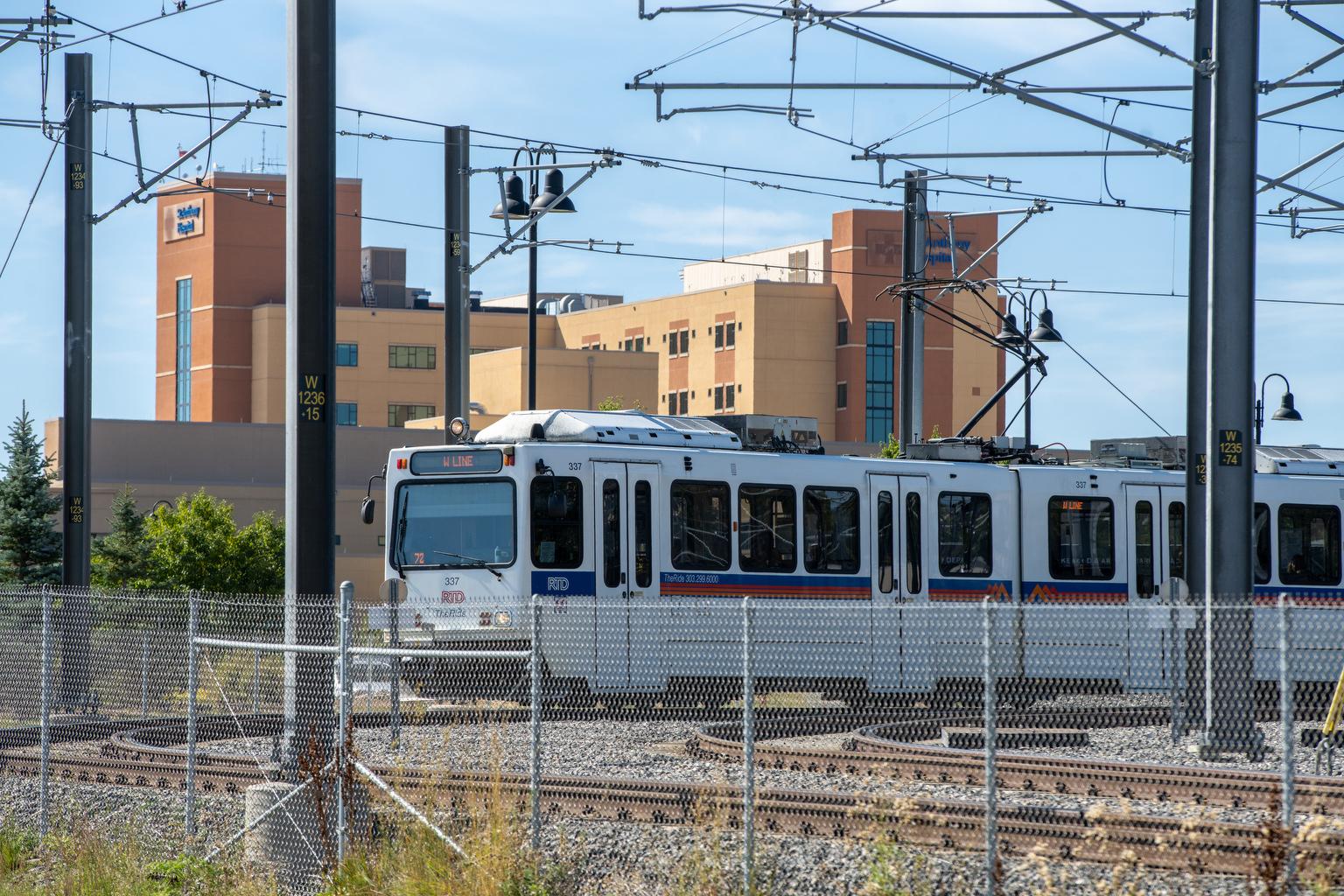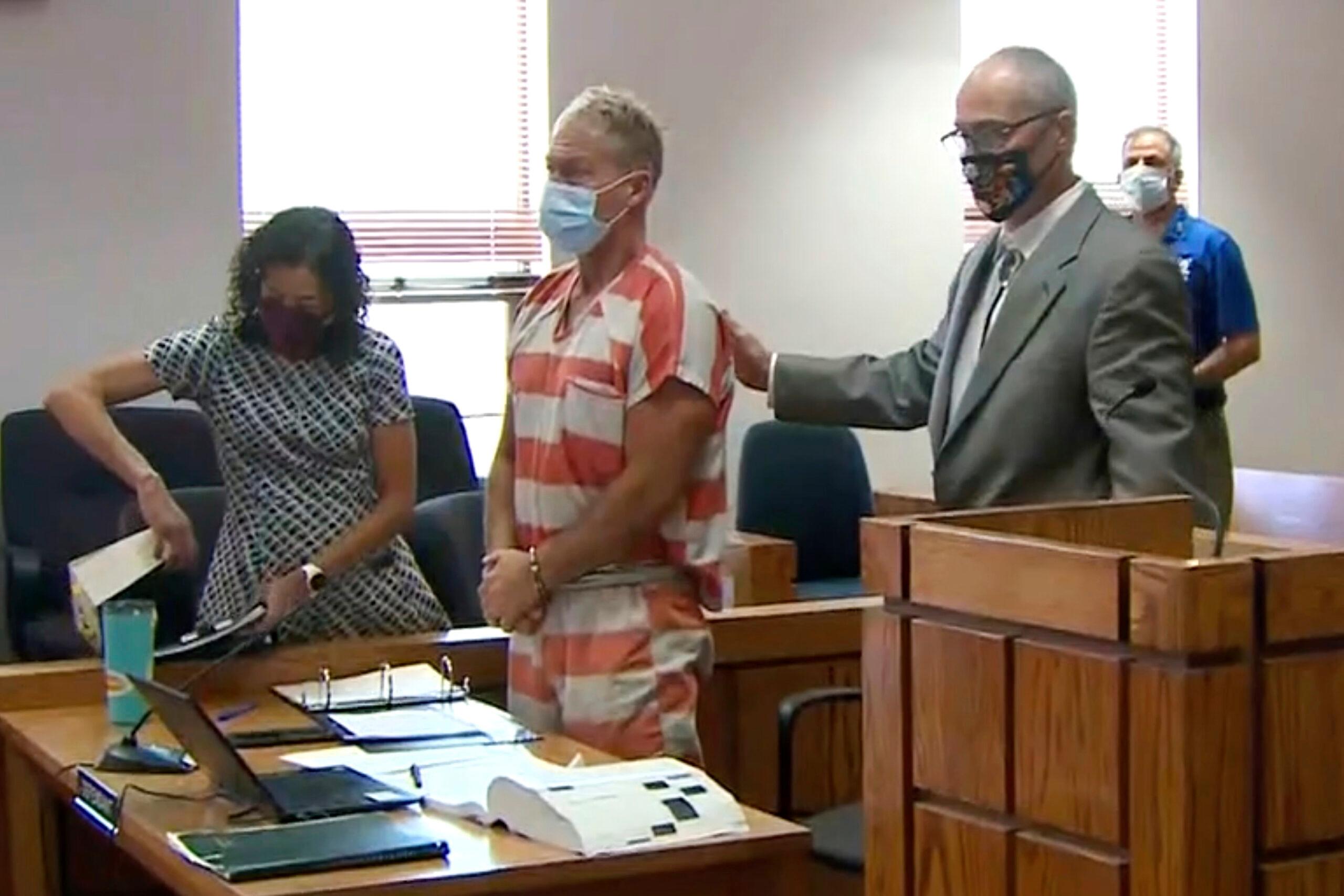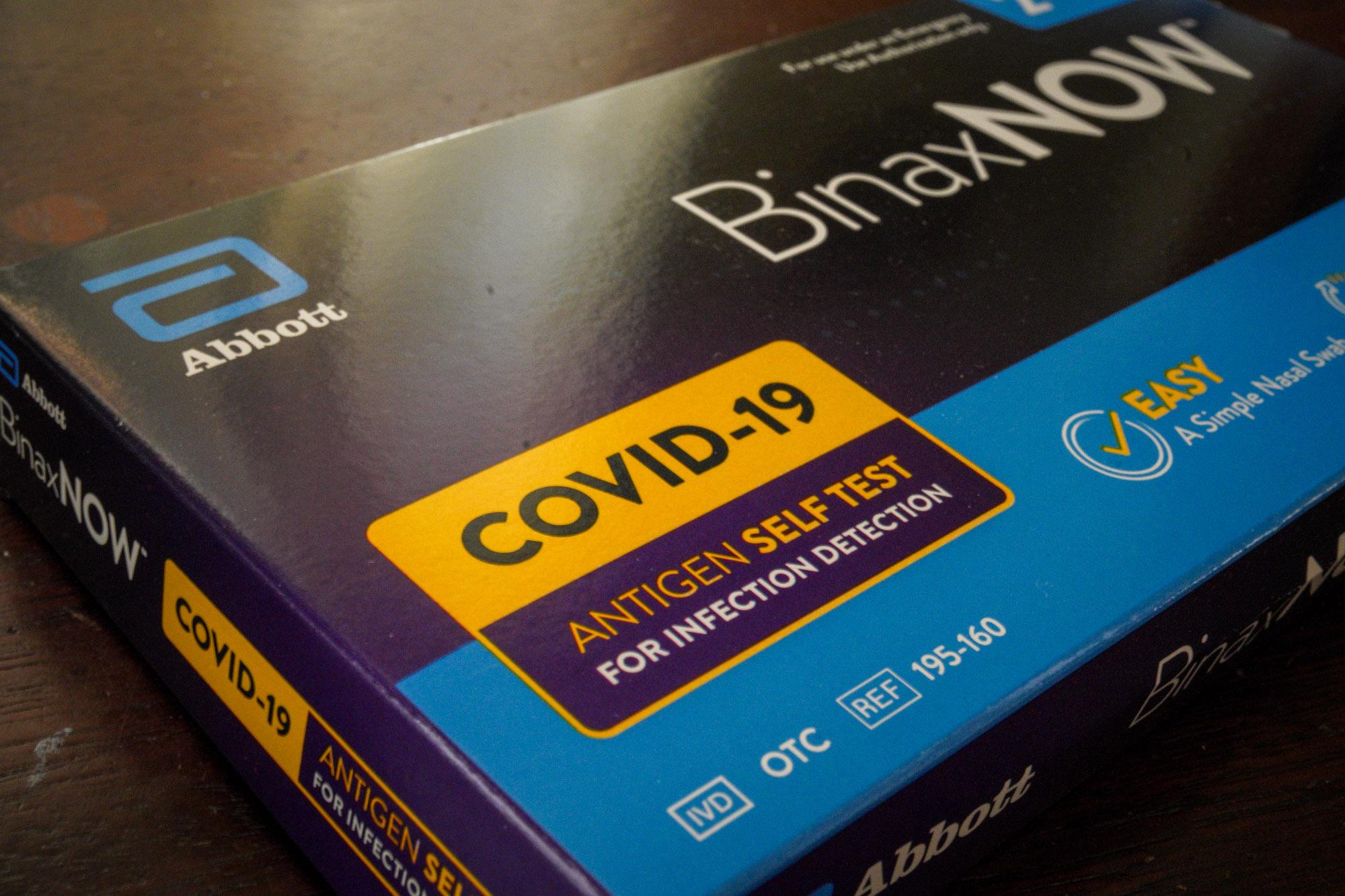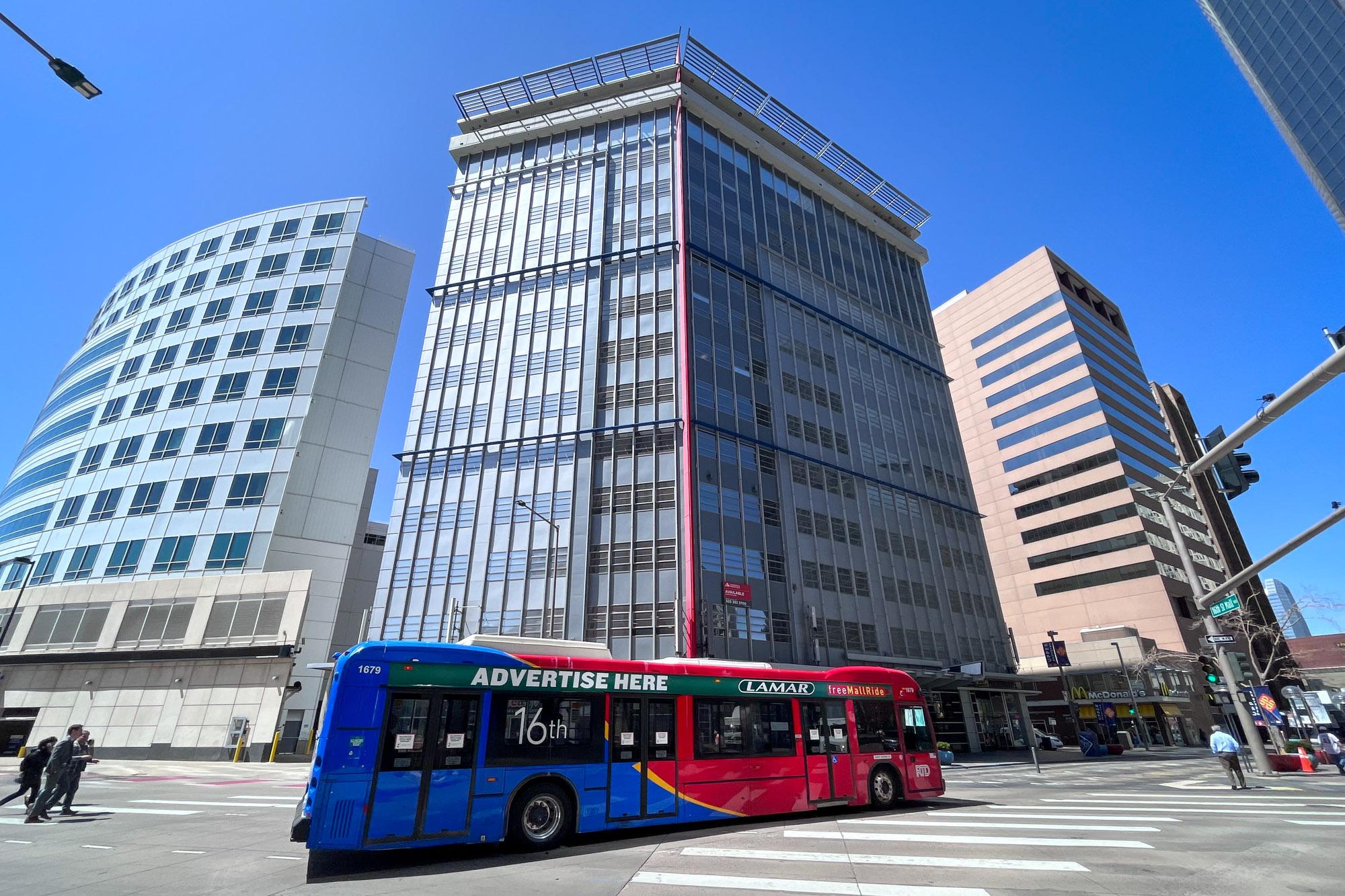
A new plan to dramatically change the makeup of the board that leads RTD, the local transit system, is driving sharp divides among Democratic officials, especially in the city of Denver.
HB24-1447, which was introduced in the state legislature on Tuesday, would cut the size of the transit district’s elected board and give the governor the power to appoint some of its members.
“RTD has a long list of broken promises to Coloradans and does not provide the transit services our growing metro area needs,” wrote Shelby Wieman, a spokesperson for Gov. Jared Polis.
It would take until 2027 for the changes to fully go into effect — but they would start within a matter of months, including by canceling elections for the eight district seats that are currently scheduled for this November.
Instead, there would be only two elections for district-wide seats this fall, alongside another big change: The governor would appoint two of the board’s members. The bill would also eliminate several more of RTD’s elected seats in the years to come.
The proposal is a priority for Gov. Polis, with the sponsors saying it’s part of a plan to make the board more “professionalized” and efficient.
“This bill is about accountability, reform, doing what’s right for Coloradans, and opening the door for significant new state investment and the sponsors are working to ensure there is a more diverse and representative board to supercharge RTD,” Wieman wrote.
But it has drawn stark opposition from some statehouse Democrats and local leaders, especially in Denver, because of its changes to RTD’s elections.
“Disappointment … and really frustration on behalf of my constituents,” is how Shontel Lewis, a member of the Denver City Council, described her feelings about the bill.
A Denver council committee is set to vote on a measure formally opposing the bill next week, and Mayor Mike Johnston has expressed concerns, too.
“We are significantly impacted by any proposed changes to the RTD governance structure, and we are concerned that the introduced version of the legislation diminishes Denver’s representation,” wrote spokesperson Jordan Fuja in an email.
Some RTD board members are rallying for a fight over the bill. Board member Michael Guzman is hosting a town hall at the Denver Athletic Club on Monday night, advertising it as an “urgent gathering” about the “right to representation and to a world-class public transportation system.”
RTD has a budget of nearly $900 million, with more than 3 million people living in its eight-county service area.
The biggest changes in HB24-1447 are:
- The RTD board would shrink to seven seats, compared to its current size of 15.
- The reduction would happen in phases. In 2025 and 2026, the board would have eleven seats. By 2027, it would be only seven seats.
- The governor would gain appointment power over two of the seats starting in January 2025
- The board members would represent much larger areas. Currently, each board member covers around 200,000 residents. Under the new organization, the metro area would be divided into just three large districts with a single board representative each, while the other four seats would be elected by the entire RTD area “at large.”
- RTD elections would move to a “ranked choice” model
- Future board members would get a raise from about $12,000 to $35,000 a year
The measure is co-sponsored by Rep. Meg Froelich, Rep. William Lindstedt and Sen. Faith Winter; all three sponsors are Democrats from the metro, and two are from the northern reaches where frustrations with RTD have been running high over the district’s failure to build a train to Boulder.
Rep. Froelich said that instead of an attack on the current board, the bill should be seen as a way to strengthen the agency.
“Let's have an inspiring RTD that inspires investment. That's the part I'm most excited about. I want to get to a place where people are like, ‘That's crackerjack. I have my public faith in them,’” said Froelich.
But the bill’s potential to give the governor new influence on the board is a concern for Lance Longenbohn, president of ATU Local 1001, which represents RTD workers.
“We’re not comfortable with that,” said Longenbohn. “If there’s a labor-friendly governor, it’s great. If they're not a labor friendly governor, it’s bad. It’s not a good way for their voices to be heard.”
Earlier versions even would have let the governor appoint the majority of the board, leaving only a single elected member, as The Denver Post reported. But it was pared back over several weeks, until it was introduced in its current form last week.
Critics say that shrinking the board will disempower some voters. With fewer elected members representing much larger areas, they say, it will be harder for individual neighborhoods and communities to be heard.
“So you lose your representation, but you're still going to be responsible for paying into that system and you may not even have access to that system,” said Councilmember Lewis. She served on the RTD board before joining city council.
Lewis said that larger election districts would also mean more expensive elections, making it harder for candidates to succeed without big-money support. And communities of color could have less sway, since their votes would be diluted in larger districts.
That message is gaining traction among Denver-area House Democrats, who could pose a challenge to the measure.
“At a point where we should be increasing engagement… to pull (voters and riders) further away from the decision-making process is just, by definition, contrary to good policy,” said Rep. Elisabeth Epps, a Denver Democrat.
“It's better to have fewer constituents. That's a better representation mode,” said Rep. Alex Valdez, also a Denver Democrat. “I think at the end of the day, we have to get to the big question: What is the purpose of that [change]?”
Rep. Froelich said the sponsors were receptive to the criticism and would consider options like keeping more seats on the board, as well as setting diversity requirements for the governor's appointments. She also suggested the legislature could look at new funding sources for RTD.
The proposal comes as state leaders are increasingly interested in RTD’s future. The Polis administration wants to use RTD’s money and expertise to build a section of the proposed Front Range passenger rail line — the long-awaited train to Boulder.
Additionally, the bill would set new expectations about RTD coordinating with local governments.
Even among the bill’s opponents, there’s an acknowledgement that reforming RTD might be necessary. Its elections — for low-paying seats on a relatively little-known board — sometimes struggle to attract candidates. A few recent elections have been decided entirely by write-in votes.
And there’s been growing frustration and anger over RTD’s management as the district struggles to grow ridership despite completing most of the FasTracks rail project. The board needs a major change, Lindstedt said.
“We’re making [the RTD board] a job that people will want,” Lindstedt said. “But (the proposal is) just starting the legislative process. And we'll see where it ends up landing, as it goes through the full public process.”
The bill is scheduled for a hearing before the House Transportation, Housing & Local Government committee on Wednesday, April 17.
Editor's Note: An earlier version of this story incorrectly described Rep. Meg Froelich as representing a portion of the northern metro area. Her district is located in Denver's southern suburbs. The headline on the story has also been updated to clarify Gov. Polis' relationship to the bill.









